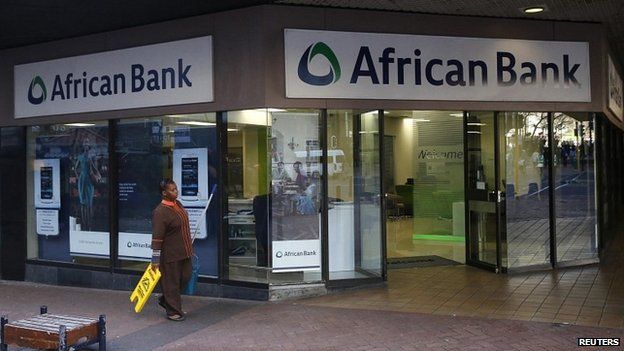Abil rescued by South African Reserve Bank
- Published

South Africa's central bank has stepped in to run troubled lender African Bank Investments Limited (Abil) temporarily.
The South African Reserve Bank has said it wants to introduce a recovery-plan that will ensure the lender has financial security in the future.
Abil said it had incurred serious financial losses in the past year and needed nearly $800m (£480m) to survive.
Abil's chief executive has resigned and the bank's shares have been suspended on the Johannesburg Stock Exchange.
They have fallen by 50% in recent days.
'Model banking'
The largest shareholder in Abil is the Public Investment Corporation, which looks after money on behalf of government pension funds.
Others who are affected are ordinary people who have deposited their savings.
Together, they make up 3.2 million customers.
Until recently, Abil was held up as a model for a new way of banking in Africa.
It targeted the mass market made up of previously unbanked South Africans, who are largely the poor and the working class.
However, some have accused Abil of making reckless loans without checking properly whether customers could afford it.
In 2005, South Africa introduced the National Credit Act, imposing strict regulations for lending.
Nationalisation
The case of Abil will be a litmus test for banking in a new South Africa, where it is necessary to cater for communities that were previously excluded from the economy because of apartheid.
The Reserve Bank is the last port of call for troubled banks, but its involvement here may be seen as a first step to nationalising a local bank.
Calls to take over strategic assets of the economy have been made previously by factions in the ruling party and by some radical opposition groups, such as the Economic Freedom Fighters.
But experts insist that despite events at Abil, South Africa's banking system is still regarded as stable, safe and advanced by global standards.
The problems at Abil may not have a damaging impact on the local banking system at large.
- Published27 May 2014
- Published1 May 2014